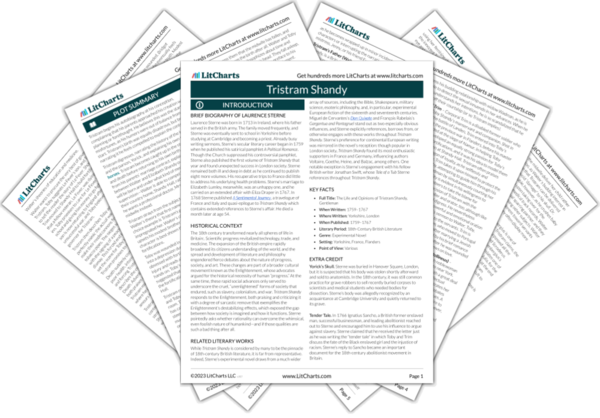Tom’s story recalls those of other fortune-seeking Englishmen who journeyed overseas to find success. Strangury is a condition caused by a blocked urinary track; though painful, it is rarely lethal, making the Jew’s death another lewd joke of Tristram’s. Trim’s sadness over his brother’s fate, while tragicomical, asks a serious question to: if God and the universe are good, why do good people suffer?
